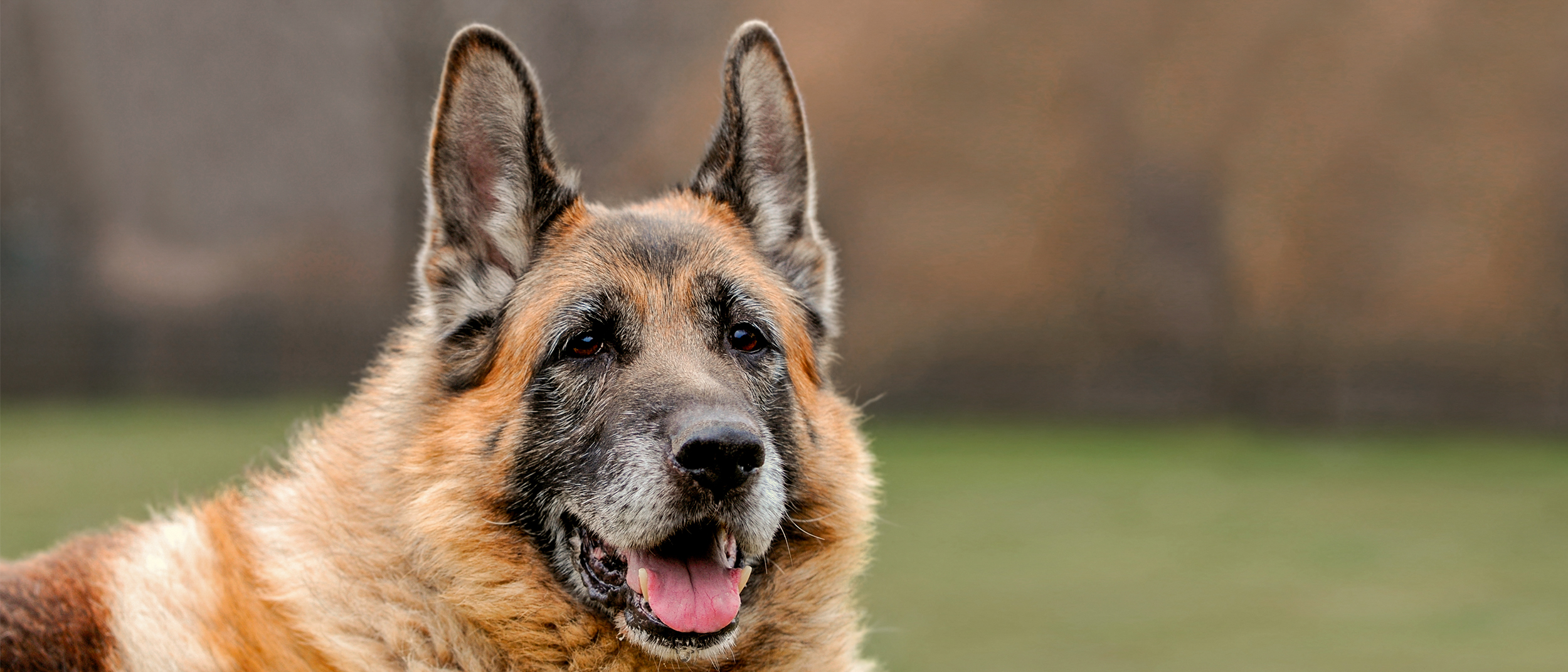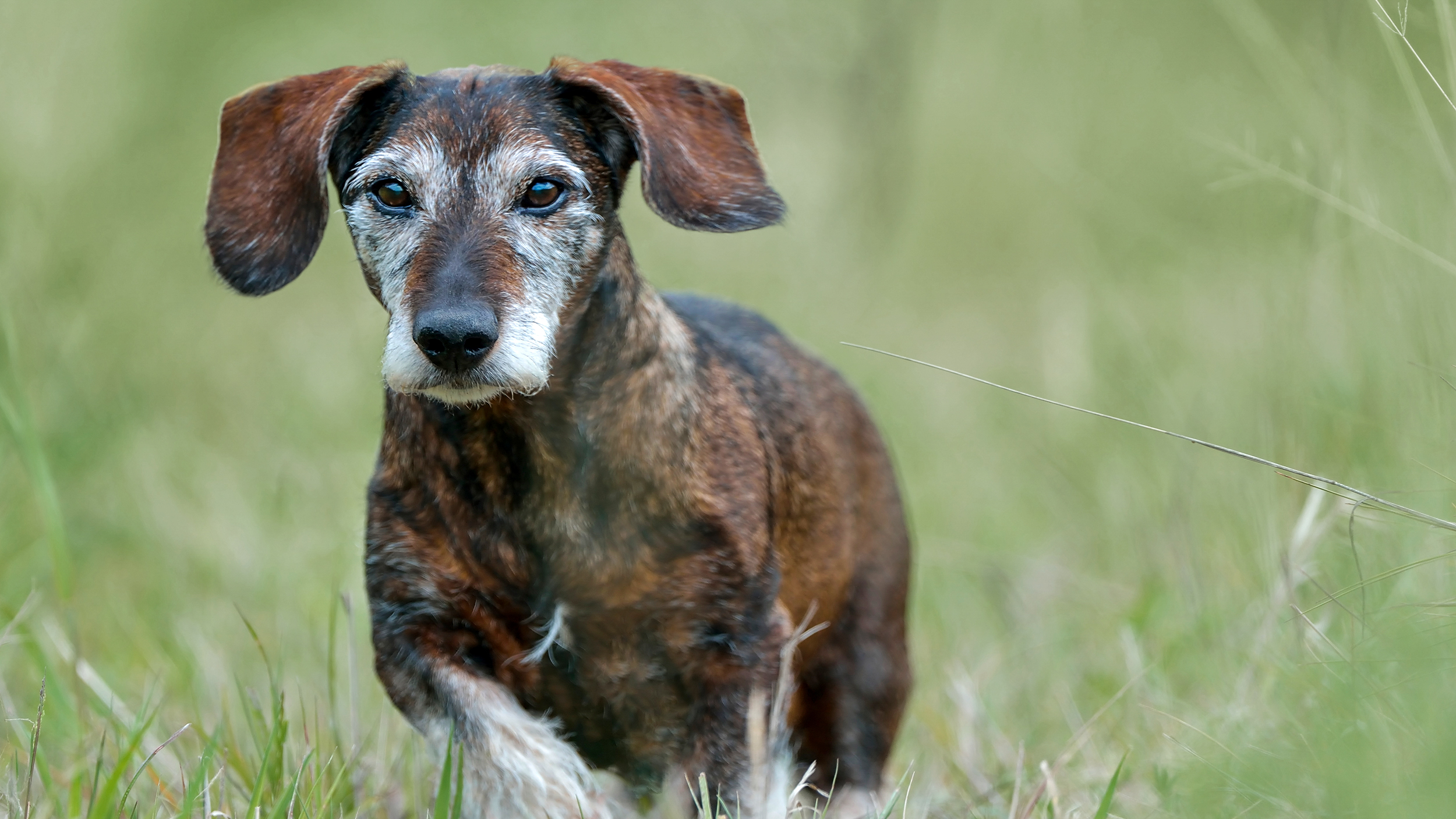How should I care for my ageing dog?

As your dog gets older, you’ll start to notice physical and behavioural changes which should be addressed if you want your dog to continue to have a good quality of life. There are simple ways you can do this, from their exercise to their diet.
How breed and size affect ageing
Not all dogs have the same life expectancy; this is dependent on genetics, lifestyle, breed and size. Smaller dogs – those under 10 kilos – live for around 12 years, while larger dogs over 45 kilos in weight tend to live for around seven to eight years. The ageing process also starts earlier in larger dogs and therefore each dog can be considered senior at a different age.
Each breed and size of dog has specific age-related problems. For example, small dogs often suffer heart issues. Your dog’s diet should take these differences into account and provide them with the specific combination of nutrients to support their health challenges.
Avoiding stress in your ageing dog
One of the most important considerations when altering your dog’s routine is to not cause them unnecessary stress. As dogs age, they can exhibit behavioural changes like incontinence, changes in sleep habits, and decreased interaction with owners. Abrupt or rapid changes to their routine can exacerbate these problems, so be sure to phase any adjustments in gradually.

Exercising your ageing dog
Cardiovascular issues can begin to affect older dogs, reducing their cardiac output. Their level of activity needs to match this reduced capability, otherwise it may result in heart difficulties.
Osteoarthritis and joint problems are common in ageing dogs, and can be made worse if your dog is overweight. You may wish to install a ramp if your dog is struggling to climb certain stairs, or carpet if it is struggling to remain steady on tiled or wooden floors. Swimming is excellent exercise for older dogs who may have joint problems.
Your ageing dog’s diet
Your dog’s ability to smell and taste can be reduced as they get older; make sure to keep toxic foods or substances out of their reach, just in case.
Energy requirements of older dogs are around 10%-20% less than younger dogs, so you can adapt their meal sizes to avoid any unnecessary weight gain. Feed which is lower in fat yet still highly palatable are a good choice for older dogs as it encourages them to eat while avoiding over-consumption.
Your ageing dog’s food should also include specific nutrients to support its health during the ageing process, such as:
- Long chain omega 3 fatty acids, which can support healthy heart function
- A selection of active nutrients with demonstrated benefits joint health
- Reduced phosphorus levels to support effective kidney function
The health of your ageing dog
Regular health checks are a key way of spotting age-related diseases early on and providing the best care possible for your dog. You can also keep your dog healthy at home through regular teeth-brushing – to avoid the build up of plaque which can lead to gingivitis – bathing and grooming.
Some symptoms which may appear to be simply signs of ‘getting older’ can be indicators of underlying illness, so it’s important to consult your vet if you notice your dog’s appearance or behaviour changing; they’ll be happy to advise you on the best course of action.
Related Articles
Find a vet
If you have any concerns about your dog’s health, consult a vet for professional advice.
Like & share this page